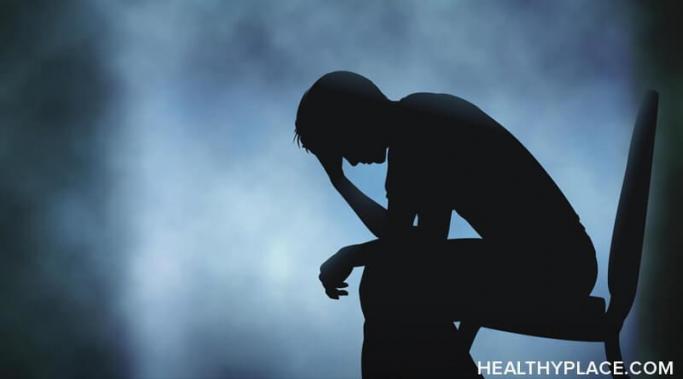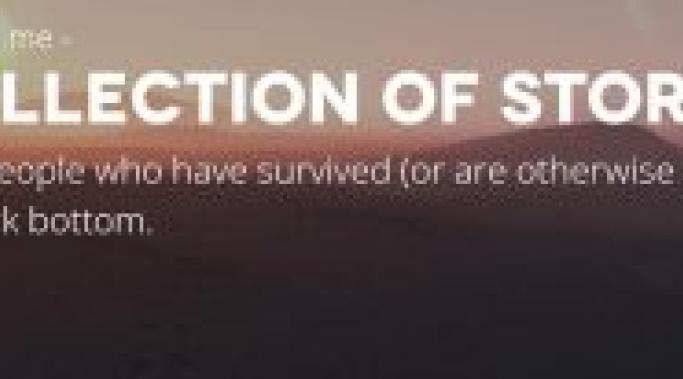As I walk through the day hospital to attend a new cognitive behavioral therapy (CBT) program, I feel a sense of embarrassment and shame. I wonder and search within myself to only ask, “How has it come to this?” As I stop by the nurse’s station to ask for directions to find my way to the group, I cannot help but sense that they must be assessing and judging me. There is a great deal of mental health stigma when accessing mental health resources for the purpose of rehabilitation and I believe a great majority of us have felt it at one time or another.
Self Stigma
When you have a mental illness, particularly bipolar disorder, your moods can alter rapidly, gradually or barely at all during periods of your life. It all depends on the individualized experience of the person who has the illness. Quite often, we self-stigmatize our emotions and ask, “Am I actually feeling a certain way because of my own pure emotions, or am I experiencing these emotions because of my mental illness?”
There is so much pain in self-stigma, especially when it comes to our body image and looking in the mirror. We often hate ourselves because we have a mental illness, not realizing that we are not a terrible embodiment of our illness. We are simply people that have struggles and face unique challenges stemming from our mental illness. For example, being tired all the time, being overweight because of medication, and even being unable to work. We seem to give up on the belief that one day things will be better and fail to trust that others will understand us. I have learned that life has many surprises in store for us and, at times, we may just get to understand that we are not exactly what we see in the mirror.
Have you heard of the term self-stigma? Once you are diagnosed with a mental illness, many people feel that they are somehow tainted, mostly because of mental health stigma. Not only do they feel this outwardly, but also in how they perceive their internal sense of who they are as a person. It is not uncommon to experience shame of having a mental illness, and instead of knowing that you are a person who has an illness, you often forget you are not someone who is the illness. This is at the center of self-stigma.
People often ask me what is mental health stigma anyway? I make it simple. Stigma is the widespread perception about people who have a mental illness. Stigma says "those people" are scary, violent or crazy. It is these terms that shed a negative light on people with a mental illness simply because they have a disorder. It is outright discrimination, it is a lack of knowledge, and a clear indication that a great number of people who believe this are severely ignorant and misinformed. Self-stigmatization is that same thing, only the mental health stigma comes from within.
Do you ever feel as if you're not good enough?
Do you ever wake up at night and think, If others really knew me...
Do you ever walk around looking at others, knowing they are better/smarter/more beautiful than you?
Yes.
In 1982, I attempted suicide after a failed relationship and ensuing depression. I was taken to the emergency room and made to swallow syrup of Ipecac. After a night of throwing up and crying, I was told that I needed to see a psychiatrist.
I was only 16, and I hated the thought that I was different.
That feeling has never left me.
Over the past year and a half, I’ve been talking about things we can all do to instigate change in the realm of mental health stigma. One unifying theme that I keep mentioning is the need for people to come out of the metaphorical closet and share their stories. But it isn’t always that easy.
I chose the rather unorthodox method of writing and publishing my memoir. But that’s a little extreme. We don’t all have to write books in order to combat mental health stigma.
I thought I was done with writing about eating disorders.
I developed and started writing HealthyPlace's Surviving ED blog in 2010. Readers saw me through several relapses, struggles and many tears, and the everyday ups and downs of recovering from an eating disorder.
In December 2012, I wrote a highly optimistic good-bye post, declaring that I had found my dream job and wishing everyone well. I was done, done with anorexia and writing about it. I was moving on, to a bright and endless future.
First I found out the job wasn't such a dream after all.
Today I found out I am overweight and need to lose some pounds, putting me on par with the majority of Americans.
I can't believe it.
'I need mental health help.'
When you are suffering from a mental illness, these are often the three most difficult words to say. But the real question is 'why?'









